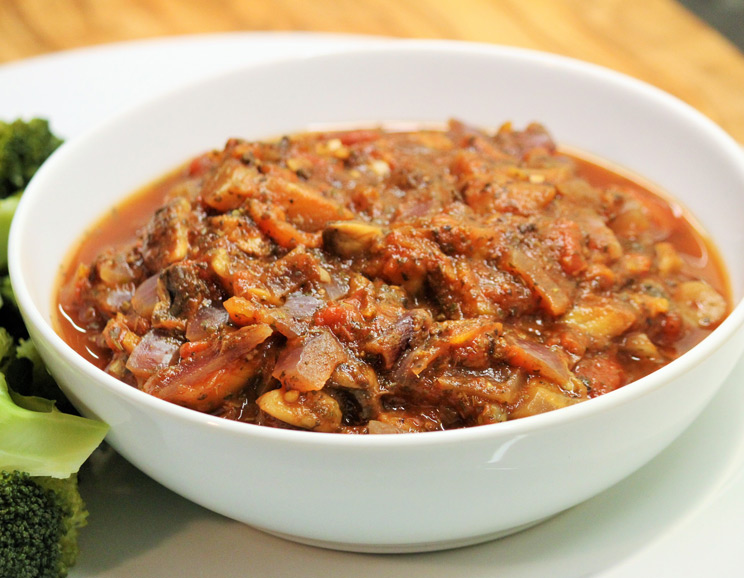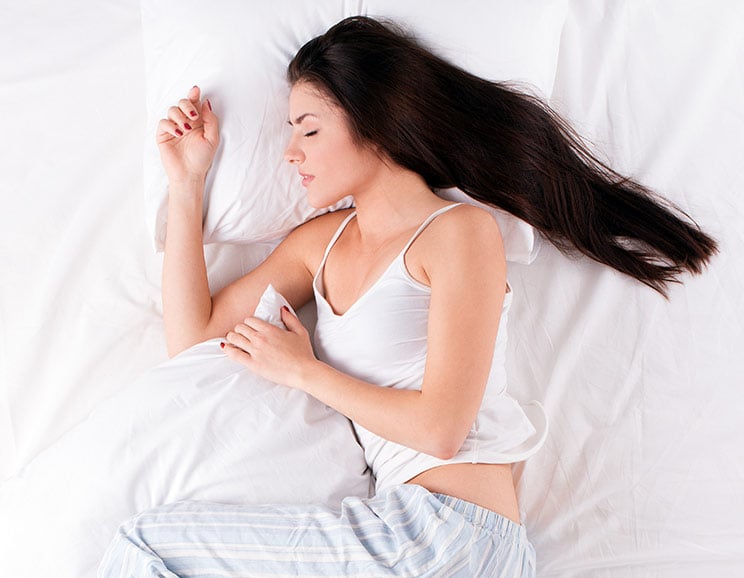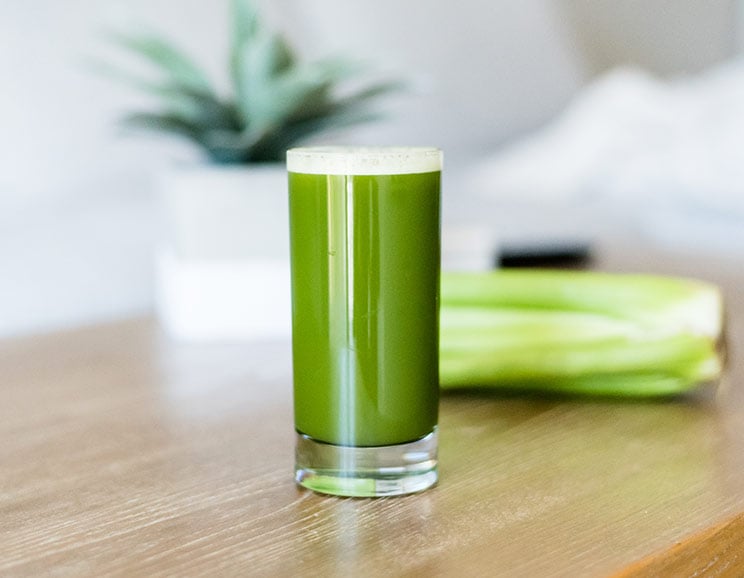I’d like to consider myself a professional sleeper, I mean, I’ve been doing it all of my life, literally. Over the years, I have become more aware of how my sleep position affects my ability to fall asleep, stay asleep and wake rested. Though I came up with a few ideas for what works best for me, I began to wonder if these were universal or not.
What Specialists Have To Say
When you think about it, there are really only so many positions we can sleep in. We have three main sleeping positions: side, back, and stomach. However, each of these can come with endless variables, which makes things a little trickier to pin down.
(Read: 5 Little-Known Factors Ruining Your Sleep)
Most of the specialists recommend we sleep on our side for the most comfortable position. Sleeping on our side is also supposed to decrease the probability of having interrupted sleep.
The overall consensus says that sleeping on our sides is the most beneficial for alleviating insomnia and sleep deprivation; however, there are various ways of sleeping on the side of our body. The question is, what is the most comfortable of all these varieties?
What About Personal Preference?
Let’s be real, we all have personal preferences, and sometimes our personal taste matters much more than what’s generally considered to be the best. It might take some reflection to really see why we have certain sleep preference; however, as long as you feel it’s doing you the most good, that’s all that matters.
That being said, it might be helpful to consider which particular positions do to the body best over a longer time period. Let’s start with the back sleepers.
- The Back: If you prefer this particular position, be aware of your lower back over time. This position is said to possibly encourage lower back pain and possibly sleep apnea, which may lead to restlessness. The good news is that if you prefer this position, there are a few slight adjustments you can make to improve the quality of this position so you can sleep more soundly. For example, try putting a small, soft pillow under the knees – this will assist the normal curve of the spine.
- The Stomach: If the stomach is your go-to position, know this might be the worst of all positions. The professionals don’t recommend sleeping on your stomach, as it promotes a very unnatural flex on the spine. Over time, this strain can cause your lower back and neck to hurt. There is also the possibility of wrinkling to occur on the face. When we sleep on our face, the skin is being tugged around on the pillow and also, circulation is being cut off from the pressure of lying on the face. This might result in less blood flow to the skin and other parts of the body, causing limbs to fall asleep.
This is why often, people who sleep on their stomachs report restlessness and frequent tossing and turning. Here’s a tip for the stomach sleepers: use an extremely comfortable pillow or better yet, no pillow at all. This will take away the awkward and uncomfortable bend on the neck. Overall, if you are having sleep problems, it is going to be best to avoid sleeping on the stomach.
The Pros and Cons of Sleeping Positions

After researching, I found that there is really only one way of sleeping that is said to be the optimal choice, which I will share at the end. The rest of the many ways to sleep all had their pros and cons.
Let’s have a look at what these positions have to offer. Additionally, just for fun, let’s see what each hints at about your personality according to experimentation. This might help you address your own sleeping positions and make helpful adjustments. (1, 2)
Fetal Sleeping Position
This is actually the most common sleeping position. Forty-one percent of participants in research were found to sleep in this way. For whatever reason, women are twice as likely to rest in this curled-up position. It was documented that these sleepers are the thoughtful on the outside, soft on the inside type of people.
Pros: This is a side sleeping position, which is said to be the most comfortable. Side sleeping is also going to decrease the chances of snoring.
Cons: The only downside about a fetal position is that it may induce a curved spine overtime, leading to potential back pain. Also, without a pillow between the legs, hip and knee pain could be an issue.
Coffin Sleeping Position
Just as the name suggest, these people sleep in a stiff, arms to the side manner just as body in a coffin. No worries, this doesn’t imply you have a dead personality. Actually, the studies suggested that these individuals are trusting, sometimes to the point of gullibility.
Pros: Sleeping on the back in coffin position is a good way to ensure a straight spine and avoid any limbs falling asleep while sleeping. Also, by lying on the back we keep any friction off the face that could cause wrinkling on the skin.
Cons: The downside to this position is a possible risk of increased snoring. On the bright side, you are less likely to have any limbs fall asleep and less likely to get wrinkles on the face. Only 15% of people sleep in this log-like position.
Yearner Sleeping Position
Close to a third of people sleep in this variety of a side position. This variety is executed with both arms out in front of the body. The yearners are thought to be open-minded but suspicious. They are firm decision-makers – sticking to their decisions once they are made.
Pros: This position is another variety of side sleeping. It offers the comfort and calm feeling of a side position. This is also a great position for pregnant women, as it offers relief from pressure on the back and the arms are up and away from resting on the stomach.
Cons: The position of the arms in this one makes them liable to fall asleep. There might be some shoulder discomfort due to overstretching through the night.
Freefalling Sleeping Position
The freefallers are the sleepers who lie on their stomachs with arms underneath or wrapped around the pillow. Only 7% of the people studied slept this way. Supposedly, freefallers are more outgoing, and strongly dislike criticism.
Pros: The bright side is you are likely to experience less mind chatter in this position.
Cons: The downside is an increase in chances of lines and wrinkles on the face. Possibly some neck pain as well, considering there will be a strong turn to the head occurring in this position.
Starfish Sleeping Position
This position was found to be most uncommon in all of the studies done. It is where an individual lies on their back with their arms up by their head or hands behind the head, under their pillow. It is thought that these sleepers are great listeners, enjoy helping others and do not like being the center of attention.
Pros: Snoozing in this pose is great for spine and neck health, because the back is able to remain straight and free of any contortion. Though somewhat vulnerable, this is an ideal position for body composition if there was no use of a pillow. The use of a pillow can cause neck pain; however, many people are too used to a pillow to give one up. If you’re up for it, try this position without a pillow on a comfortable bed if you have any body aches.
Cons: The downside is that along with being a good listener, these sleepers may also experience too much listening to the chatter of their own minds at night. This wide-open position encourages the possibility of snoring, as most back sleepers do.
The Best Sleep Positions
According to the research done, the most relaxing and beneficial position includes the slight bending of knees upwards, tucked toward the chest. However, keep in mind that each person is a bit different, so this position may not be perfect for everyone. This is generally true, as most everything is subjective.
(Read: The 10-Minute Yoga Routine For Perfect Sleep)
For example, anyone with a bad back might want to consider modifying this position a bit by placing a pillow between the legs. This will alleviate any pressure on the hips and lower back.
For pregnant women, sleeping on their side with a pillow between the legs is actually highly encouraged, since lower back pain and hip tension is likely to happen during pregnancy.


 Adaptogens: Natural Stress-Busting Herbs
Adaptogens: Natural Stress-Busting Herbs








Show Comments